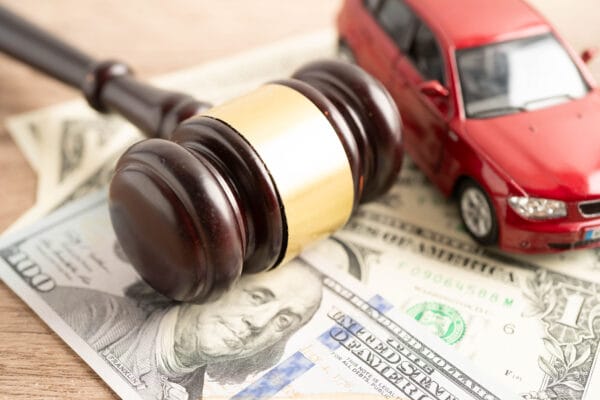
The Short Answer:
To prove negligence in Maine, you must show that the defendant owed you a duty of care, breached that duty, caused your injuries, and left you with measurable damages. In other words, you need to demonstrate that the other person acted in a way that a reasonably careful individual would not have under similar circumstances.
Because proving negligence often requires evidence such as accident reports, expert testimony, and medical documentation, having an experienced Maine personal injury lawyer on your side can make a significant difference in the outcome of your case. A lawyer can help you gather the right proof, apply Maine’s negligence laws effectively, and pursue the maximum compensation available.
Key Takeaways
- Negligence occurs when someone fails to use reasonable care and causes harm.
- You must prove 4 elements: duty, breach, causation, and damages.
- Evidence like photos, medical records, and witness statements help establish negligence.
- Maine follows a modified comparative negligence rule, so you can recover damages if you’re less than 50% at fault.
- An attorney can make all the difference by gathering proof, building your case, and protecting your rights.
What Is Negligence?
Negligence occurs when someone fails to act with the same level of care that a reasonably careful person would use in a similar situation. It means behaving carelessly or not taking proper precautions when there’s a duty to do so.
In Maine, proving negligence is at the heart of most personal injury cases. When a person’s careless actions or failure to act cause someone else’s injury, the law allows the injured person (called the plaintiff) to seek compensation from the responsible party (the defendant).
Negligence can involve doing something unsafe, like speeding through a red light, or not doing something required, such as a property owner failing to remove ice from a walkway. Whether through action or inaction, what matters is that the person did not meet the standard of reasonable care expected under the circumstances. To win a personal injury case, the injured person must prove that the defendant’s lack of care directly caused their injuries and resulting losses.
The 4 Elements to Prove Negligence
To win a personal injury claim, it’s not enough to simply show that someone was careless. You must prove all 4 elements of negligence. These elements form the legal foundation that connects a person’s actions (or inaction) to your injury and the damages you’ve suffered.
1. Duty of Care
The first element is proving that the defendant owed you a duty of care. This means they had a legal responsibility to act in a way that would prevent harm to others. For example, drivers must obey traffic laws and stay alert on the road, while property owners are expected to keep their premises reasonably safe for visitors.
2. Breach of Duty
Next, you must show that the defendant breached their duty of care. A breach occurs when a person fails to act as a reasonably careful person would in the same situation. This could involve taking a risky action (like texting while driving) or failing to act when necessary (such as not repairing a known hazard on a property).
3. Causation
The third element, causation, connects the breach of duty to your injuries. You must prove that the defendant’s negligence directly caused your harm. In other words, your injury wouldn’t have happened if the defendant had acted responsibly. Evidence such as police reports, witness statements, and expert testimony often help establish this link.
4. Damages
Finally, you must demonstrate that you suffered damages as a result of the negligence. Damages may include physical injuries, emotional distress, lost wages, and medical expenses. Keeping detailed records, like bills, pay stubs, and medical reports, helps strengthen your claim and show the full extent of your losses.
Each of these elements works together to create a clear picture of negligence. By carefully gathering evidence and working with an attorney who can help prove each element, you strengthen your chances of holding the responsible party accountable and recovering the compensation you may be entitled to.
Comparative Negligence in Maine
Maine follows a modified comparative negligence law, which can significantly affect how much compensation you may receive after an accident. Under this rule, each party’s level of fault is carefully examined to determine who is responsible and how damages are distributed.
If you are found to be less than 50% at fault, you may still recover compensation for your injuries. However, your total award will be reduced by your percentage of fault. For example, if you are 20% responsible for an accident and your damages total $100,000, you would be entitled to recover $80,000.
If you are 50% or more at fault, Maine’s comparative fault rule bars you from recovering any compensation.
Because comparative negligence laws can be complex, it’s helpful to hire a qualified personal injury attorney. A lawyer can investigate the facts, gather evidence, and challenge unfair fault assessments to help you pursue the maximum recovery allowed under Maine law.
Examples of Negligence
Negligence can manifest in various forms, each with unique challenges in proving liability. Here are some examples:
Negligence in Motor Vehicle Accidents
Motor vehicle accidents, including those involving cars, trucks, motorcycles, and pedestrian incidents, are common examples of negligence. Proving negligence in these cases often involves demonstrating that the other party violated traffic laws or failed to drive safely under the circumstances (e.g., drunk or distracted driving).
Negligence in Premises Liability Cases
Cases like dog attacks and slip-and-fall incidents fall under premises liability. Property owners have a duty to ensure their premises are safe. Proving negligence involves showing that the owner knew or should have known about the hazard and failed to rectify it.
Negligence in Product Liability Claims
When products cause injury due to manufacturing defects, design flaws, or inadequate warnings, it’s possible to hold the manufacturer or distributor responsible for negligence.
Negligence Leading to Wrongful Death
In cases where negligence results in fatal injuries, the deceased’s family may pursue a wrongful death claim. These cases require proving that the negligence directly led to the death and resulted in measurable damages to the family.
How Lowry Law Can Help You Prove Negligence
Proving negligence and securing fair compensation can be challenging, especially when you’re recovering from an injury. That’s where the trusted legal team at Lowry Law comes in. Our attorneys understand Maine’s negligence laws and know how to build strong cases that stand up to insurance companies and in court.
Here’s what our lawyers can do for you:
- Conduct a detailed investigation: We gather key evidence such as police reports, medical records, photographs, and witness statements to establish who was at fault.
- Handle all communications: Our team manages every conversation with insurance adjusters and opposing counsel so you can focus on healing.
- Protect you from unfair blame: We know how to challenge attempts to shift fault onto you under Maine’s comparative negligence law.
- Negotiate for maximum compensation: We pursue full and fair compensation for medical bills, lost income, pain and suffering, and other losses.
- Represent you in court if necessary: If settlement negotiations don’t lead to a fair outcome, our trial lawyers are ready to fight for you in front of a judge or jury.
At Lowry Law, we take pride in offering personal attention and strong advocacy to every client. We stand by you through every step of the legal process, making sure your rights are protected and your voice is heard.
Schedule Your Free Case Review Today
Proving negligence isn’t just about gathering evidence—it’s about telling your story and making sure your voice is heard. At Lowry Law, we understand how stressful life can be after an accident, and we’re here to guide you every step of the way. Our experienced Maine injury attorneys serving Portland, Greater Bangor, Lewiston, and across the state know how to prove negligence and hold careless individuals and companies accountable.
We offer free case reviews so you can learn your legal options with no risk or pressure. We also work on a contingency fee basis, so you don’t pay us unless we win for you.
When you choose Lowry Law, you gain a dedicated advocate who will investigate your claim, deal with the insurance companies, and pursue justice on your behalf. Contact Lowry Law today to schedule your free consultation and let our team help you prove negligence and move forward with confidence.






